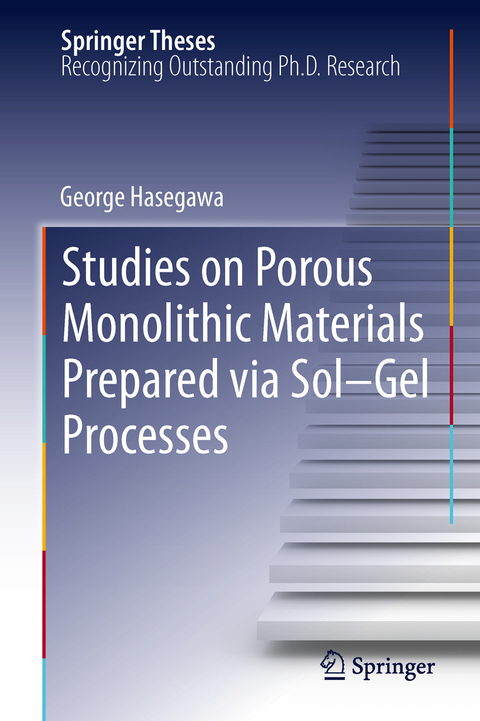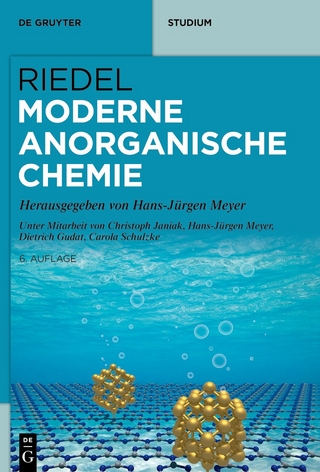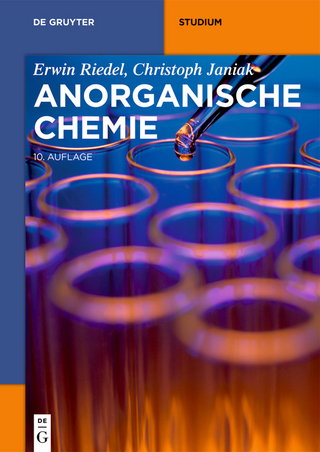
Studies on Porous Monolithic Materials Prepared via Sol–Gel Processes
Springer Verlag, Japan
978-4-431-54674-0 (ISBN)
This thesis focuses on porous monolithic materials that are not in the forms of particles, fibers, or films. In particular, the synthetic strategy of porous monolithic materials via the sol–gel method accompanied by phase separation, which is characterized as the non-templating method for tailoring well-defined macropores, is described from the basics to actual synthesis. Porous materials are attracting more and more attention in various fields such as electronics, energy storage, catalysis, sensing, adsorbents, biomedical science, and separation science. To date, many efforts have been made to synthesize porous materials in various chemical compositions—organics, inorganics including metals, glasses and ceramics, and organic-inorganic hybrids. Also demonstrated in this thesis are the potential applications of synthesized porous monolithic materials to separation media as well as to electrodes for electric double-layer capacitors (EDLCs) and Li-ion batteries (LIBs). This work is ideal for graduate students in materials science and is also useful to engineers or scientists seeking basic knowledge of porous monolithic materials.
Dr. George Hasegawa Department of Energy and Hydrocarbon Chemistry, Graduate School of Engineering, Kyoto University
From the Contents: General Introduction.- Pore Formation in Poly(divinylbenzene) Networks Derived from Organotellurium-Mediated Living Radical Polymerization.- Extension of Living Radical Polymerization Accompanied by Phase Separation to Methacrylate- and Acrylamide-based Polymer Monoliths.- Novel Monolithic Capillary Column with Well-Defined Macropores Based on Poly(styrene-co-divinylbenzene).- Fabrication of Activated Carbon Monoliths with Well-defined Macropores Derived from Sulfonated Poly(divinylbenzene) Networks.- Monolithic Electrode for Electric Double-Layer Capacitors Based on Macro/Meso/Microporous S-Containing Activated Carbon with High Surface Area.- Facile Preparation of Transparent Monolithic TiO2 Gels Utilizing Chelating Ligand and Mineral Salts.- Novel and Facile Preparation of Hierarchically Porous TiO2 Monoliths.- Application of Hierarchically Porous Titania Monoliths to Chromatographic Separation Media.- Arylene-bridged Polysilsesquioxane Monoliths with Multi-Scale Porous Structure Prepared via Sol–Gel Process Followed by Hydrothermal Treatment.- Fabrication of Macroporous SiC and SiC/C Monoliths from Arylene-Bridged Polysilsesquioxanes via Carbothermal Reduction.-Hierarchically Porous Carbon Monoliths with High Surface Area from Arylene-Bridged Polysilsesquioxanes without Thermal Activation Process-. Facile Preparation of Monolithic LiFePO4/Carbon Composites with Well-Defined Macropores for Li-ion Battery.- General Summary.
| Erscheint lt. Verlag | 9.11.2014 |
|---|---|
| Reihe/Serie | Springer Theses |
| Zusatzinfo | XVI, 208 p. |
| Verlagsort | Tokyo |
| Sprache | englisch |
| Maße | 155 x 235 mm |
| Themenwelt | Naturwissenschaften ► Chemie ► Anorganische Chemie |
| Naturwissenschaften ► Chemie ► Organische Chemie | |
| Naturwissenschaften ► Chemie ► Physikalische Chemie | |
| Naturwissenschaften ► Chemie ► Technische Chemie | |
| Technik ► Elektrotechnik / Energietechnik | |
| Technik ► Maschinenbau | |
| Schlagworte | Carbon materials • LiFePO4/Carbon Composites • Monolithic Columns • Monolithic Electrodes • Phase separation • Polymer Gels • Porous Monolithic Materials • SiC Ceramics and SiC/C Composites • Sol–gel Method • TiO2 Monoliths |
| ISBN-10 | 4-431-54674-X / 443154674X |
| ISBN-13 | 978-4-431-54674-0 / 9784431546740 |
| Zustand | Neuware |
| Haben Sie eine Frage zum Produkt? |
aus dem Bereich


